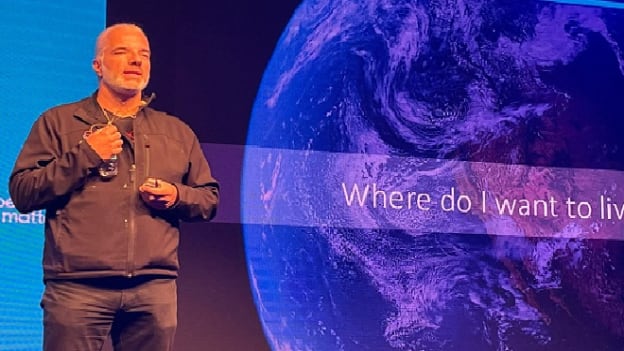People-driven technology is the next generation of work

The future of work is in constant motion. According to the survey by Fortune 500, many companies were not able to sustain themselves because they didn’t grow fast enough. Why? One of the main drivers of their demise is technophobia.
The question arises, how did this happen? Mueller brings forth an important point - the lack of empowerment of the people leaders. So how can this be solved? Through the power of technology!
In the current world of work, technology is paramount and the disruption through technology is pretty evident with the kind of impact startups have made. Mueller reiterates, “Every technology is an opportunity, and through this pandemic, we have learnt that we need to rethink our thinking”.
Finding the right balance
HR professionals need to find the balance between their fear of technology and their increasing interest, like a fine mix of aromas that make up the bouquet of a glass of wine. The post-pandemic playbook has discarded old pages of the way people used to work and has enabled what the HR industry has popularly called the “Human Resource Renaissance”. Finding the right balance involves revamping the workforce management processes which would include:
- Exploring the flexibility in the people involved processes
- Investing more time in talent management
- Providing learning opportunities and motivating them
Business acceleration through deep learning and automation
Employees and employers alike have observed that automation has become a quintessential part of work now. This has led to the emergence of new business models which are re-shaping work. Enterprise acceleration is a reality and agility is of paramount importance.
The trend of empowering businesses and people simultaneously is gathering pace and next-gen HR professionals have taken notice of the situation. They understand that there is a need for deep learning and exploring different enterprise personas. The race to “adjust first” is gaining pace, which is a sweet spot for automation and business acceleration.
Empowering technophobia with techno-friendliness
Mueller quotes Mark Andreesen, “Software is going to eat the world”, and points out that there is a certain truth in the megalomania that professionals have regarding technology. It is possible to transition from “technophobia” to “techno-friendliness” when talents are empowered with the right kind of motivation - and change management is the catalyst which enforces the transformation.
Mueller concludes his session by emphasising the importance of unlearning. The future of work is being driven by numerous drivers: decentralised autonomous organisation, people-centricity, Web 3.0, smart contracts and more, but HR professionals need to filter their downloads by “learning to unlearn”. The next-gen professionals can enable change by undergoing this learning-unlearning process, allowing them to develop an “enterprising persona” in modern times.















